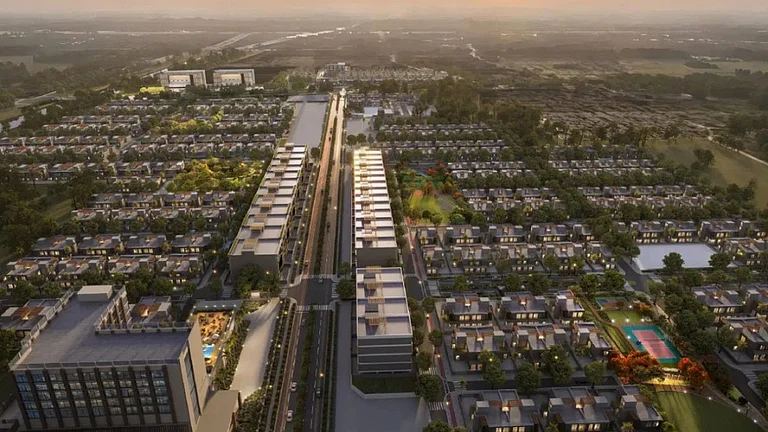Climate change is the biggest crisis for the world, and to achieve net-zero target by 2050, developed countries will have to advance their emissions target to 2040, India's G20 Sherpa Amitabh Kant said on Wednesday.
Addressing 'The Energy Transition Dialogues' organised by ORF, Kant said 80 per cent of growth in the world economy will come from emerging economies.
"Climate change is the biggest crisis before us... therefore there has to be a huge sense of urgency and that... must come from G7 countries and China," he said.
Net-zero emissions mean that the world is not adding any further emissions to the atmosphere.
"If you want to achieve net zero by 2050, the developed world, which has occupied almost 90 per cent of the carbon space in the world, needs to advance its net zero target to 2040," he said.
India has committed to going net zero by 2070 and China by 2060.
The Group of Seven (G7) nations have committed to reaching net-zero emissions by 2050.
Kant emphasised on the need to restructure international financial institutions.
"You (developing countries) need long-term lending for sustainable development and infrastructure," he said.
Noting that there is no shortage of funds in the world, he lamented the inability of multilateral financing agencies in raising funds from the private sector.
Multilateral lending institutions must also move to indirect lending, he said.
He highlighted the importance of the Green Development Pact for sustainable future and its major goals, including Hydrogen Principles, Tripling RE Capacity Targets and Global Biofuels Alliance in achieving the net zero target.
The G7 comprises the US, France, the UK, Italy, Germany, Canada and Japan, represent the world's richest democracies.
Recently, India underlined that the target of achieving net-zero emissions by 2050 should be based on the principle of equity, with developing countries peaking later, given their respective sustainable development paths, while developed countries should do a net-minus.
Recently, UN Secretary-General Antonio Guterres had stressed that emissions must fall by half by 2030 and reach net-zero emissions no later than 2050 to reach the 1.5 Celsius goal of the Paris Agreement.


























.jpg?w=200&auto=format%2Ccompress&fit=max)




